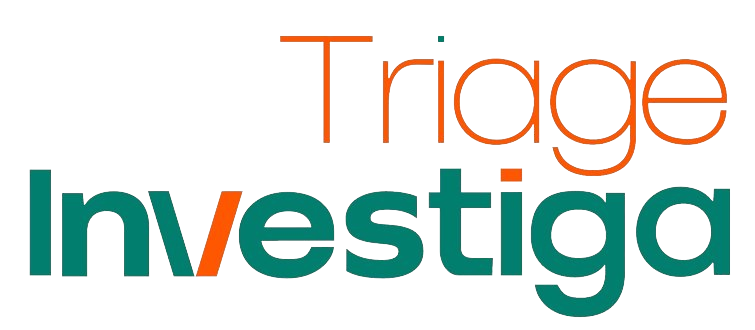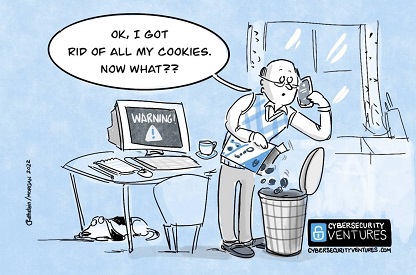
The Vital Role of Media in Anti-Corruption Reporting: A Beacon of Accountability and Transparency

January 10, 2024
Media, often referred to as the fourth estate, plays a pivotal role in the fight against corruption. Through investigative journalism, the media acts as a powerful watchdog, uncovering corrupt practices, holding the powerful accountable, and fostering public awareness. This article delves into the critical role of the media in anti-corruption reporting, emphasizing the need for safeguarding press freedom and supporting investigative journalism to ensure the effective exposure and addressing of corruption.
The Watchdog Function of Media
Media, often referred to as the fourth estate, assumes a critical role as a watchdog, acting as a vigilant check on power and serving as the eyes and ears of the public. This watchdog function is particularly evident in the realm of investigative journalism, where reporters delve deep into complex issues to uncover hidden corruption and bring to light malpractices that might otherwise remain concealed.
Investigative journalism is characterized by its in-depth examination of complex and often obscured subjects. Journalists embark on extensive research endeavors, often spanning months or even years, to unravel intricate networks of corruption. This dedication to investigative reporting allows the media to provide a comprehensive understanding of the issues at hand, revealing the nuances and intricacies that escape cursory scrutiny. Investigative journalists specialize in exposing corruption that operates in the shadows. Whether it involves embezzlement, bribery, fraud, or other forms of malfeasance, these journalists employ a combination of research, interviews, and data analysis to unearth practices that are intentionally hidden from public view. Through their work, the media becomes a powerful force in bringing covert corruption to the forefront of public consciousness.
The media’s watchful eye extends to public officials, corporations, and institutions, subjecting their actions to thorough scrutiny. Journalists investigate allegations of corruption, conflicts of interest, and abuse of power within government bodies and private entities. This scrutiny not only exposes wrongdoing but also ensures that those in positions of authority are held accountable for their actions, reinforcing the principles of transparency and accountability. By actively engaging in investigative journalism, the media plays a vital role in upholding transparency and accountability within society. The exposure of corrupt practices serves as a deterrent, signaling to individuals and entities that misconduct will be brought to light and subject to public scrutiny. This, in turn, contributes to the cultivation of an environment where transparency is valued, and those entrusted with power are held accountable for their actions.
The media’s watchdog function goes beyond exposing corruption; it empowers the public by providing them with information that is crucial for making informed decisions. Through investigative reports, the media equips citizens with the knowledge needed to hold their leaders and institutions accountable. In doing so, the media becomes a catalyst for civic engagement, encouraging an active and informed citizenry that demands ethical behavior from those in authority.
Exposing Corrupt Practices
Investigative journalists play a pivotal role in unveiling corrupt practices that pose a threat to the foundations of integrity and governance. Their work involves a meticulous process of in-depth research, conducting interviews, and employing data analysis techniques. This comprehensive approach equips reporters with the capacity to uncover instances of bribery, embezzlement, and various other forms of corruption that may otherwise remain hidden from public scrutiny.
Investigative journalists engage in exhaustive research to unravel the complexities surrounding corrupt practices. This involves sifting through documents, scrutinizing financial records, and tracing the intricate web of transactions associated with corrupt activities. The commitment to meticulous investigation allows journalists to build a robust case against individuals or entities involved in corrupt practices. Investigative journalists specialize in uncovering various forms of corruption, including bribery and embezzlement. They expose instances where public officials, corporate executives, or individuals in positions of power accept or offer bribes to influence decision-making. Embezzlement, misappropriation of funds, and financial irregularities are also brought to light through thorough investigative reporting.
Investigative reporting often relies on interviews with whistleblowers, insiders, and individuals with firsthand knowledge of corrupt activities. Journalists cultivate sources who are willing to share information that exposes corruption. These interviews provide crucial insights, testimonies, and evidence that contribute to building a comprehensive narrative around corrupt practices. The use of data analysis and digital forensics has become increasingly prevalent in investigative journalism. Reporters leverage technology to analyze large datasets, trace financial transactions, and uncover patterns indicative of corruption. Digital tools and forensic techniques enhance the capacity to detect irregularities and provide concrete evidence of corrupt practices.
High-profile investigations conducted by the media often serve as a catalyst for legal action. When evidence of corrupt practices is presented to the public, law enforcement agencies, regulatory bodies, or other relevant authorities may initiate legal proceedings. This not only holds the perpetrators accountable but also sends a powerful message that corrupt behavior will face legal consequences. The exposure of corrupt practices through investigative journalism creates a deterrent effect on individuals and entities contemplating engaging in similar activities. Knowing that their actions may be subject to intense scrutiny and public condemnation, potential wrongdoers may think twice before participating in corrupt practices. This deterrence contributes to fostering a culture of integrity and accountability.
High-profile investigative reports send a clear message that corruption will not go unchecked. By bringing attention to cases of corruption, the media contributes to building public pressure for accountability. This signaling effect is essential in maintaining public trust in institutions and demonstrating that efforts are being made to address and rectify corrupt practices.
Holding the Powerful Accountable
One of the fundamental roles of the media is to serve as a check on power, holding individuals in positions of authority accountable for their actions. This responsibility is particularly pronounced in the context of reporting on corruption within government agencies, corporate entities, and other influential institutions. Through investigative reports, the media acts as a counterbalance to unchecked authority, exposing corruption at the highest levels and catalyzing public outrage that demands accountability from those responsible.
Media outlets play a crucial role in scrutinizing the actions of government officials and agencies. Investigative journalists delve into allegations of corruption within governmental bodies, uncovering instances of abuse of power, embezzlement of public funds, and other malpractices. By shedding light on such activities, the media ensures that those entrusted with public service are held to the highest standards of transparency and accountability.
Corporate entities are not immune to the scrutiny of the media. Investigative journalism investigates corporate practices, financial dealings, and executive decisions to unearth instances of corruption within the business world. Media reports have the power to expose fraudulent activities, insider trading, and unethical business practices, prompting regulatory bodies and the public to demand accountability from corporate leaders.
Beyond government and corporate spheres, the media also focuses on influential institutions such as non-profits, educational bodies, and international organizations. Investigative reports shine a light on corrupt practices within these entities, ensuring that they are held accountable for maintaining the highest standards of integrity. This scrutiny is vital in preserving the credibility of institutions that wield significant influence in various sectors.
The media acts as a counterbalance to unchecked authority by questioning, investigating, and reporting on the actions of those in power. This role is especially crucial in societies where the concentration of power poses a risk to democratic principles. Investigative journalists act as a safeguard, ensuring that power is wielded responsibly and that those in influential positions are answerable to the public they serve.
Investigative reports on corruption at the highest levels often spark public outrage. The media, through its storytelling and exposés, brings to the forefront the magnitude of corrupt activities, their impact on society, and the betrayal of public trust. This outrage becomes a powerful force for change, pressuring authorities to take action against the perpetrators and implement reforms to prevent future instances of corruption.
Media reports serve as a catalyst for demanding accountability from those responsible for corrupt practices. Public awareness generated through investigative journalism leads to increased pressure on institutions to conduct thorough investigations, prosecute wrongdoers, and implement systemic changes to prevent the recurrence of corruption. The media, therefore, acts as a conduit through which the public can voice its demand for justice. By holding the powerful accountable, the media contributes to the cultivation of ethical leadership. Knowing that their actions are subject to scrutiny, leaders are incentivized to uphold ethical standards, transparency, and accountability. This not only benefits the immediate organization or institution but also sets a precedent for ethical conduct in the broader societal context.
Fostering Public Awareness
Media, as a powerful influencer of public opinion, plays a pivotal role in shaping societal perceptions and raising awareness about corruption. Investigative reports serve as a crucial tool in highlighting the far-reaching impact of corrupt practices, illustrating how they erode trust in institutions, impede economic development, and perpetuate social inequality. By bringing these issues to the forefront, the media contributes to the creation of an informed citizenry that is more likely to demand change and actively support anti-corruption initiatives.
Media outlets have the ability to shape public opinion through the narratives they construct in investigative reports. By presenting comprehensive and well-researched stories on corrupt practices, the media influences how the public perceives the issue. This shaping of opinion is instrumental in mobilizing public sentiment against corruption and fostering a collective desire for change.
Investigative reports go beyond exposing individual instances of corruption; they delve into the broader societal impact of such practices. Media stories explore how corruption undermines the trust citizens place in their institutions, leading to a decline in confidence in government, businesses, and other entities. By illustrating the systemic repercussions, the media emphasizes that corruption is not merely an isolated problem but a pervasive threat to societal well-being. Corruption erodes trust in institutions that are meant to serve the public interest. Investigative journalism uncovers instances where public officials abuse their positions for personal gain or where corporate entities engage in fraudulent activities. Media reports bring these cases to light, exposing the betrayal of public trust and fostering a critical perspective on the conduct of those in power.
Investigative reports draw attention to how corruption hinders economic development. By exposing embezzlement, bribery, and other corrupt practices within economic sectors, the media demonstrates how resources meant for development are diverted for personal gain. This awareness encourages citizens to recognize the direct link between corruption and the stagnation of economic progress. Corruption often perpetuates social inequality by favoring the powerful at the expense of the marginalized. Investigative journalism uncovers instances where corrupt practices exacerbate existing disparities in society. Media reports shed light on how corruption hinders equal access to resources, opportunities, and justice, prompting public discourse on the need for fair and equitable systems.
Investigative reports have the unique ability to bring complex issues to the forefront of public consciousness. By presenting corruption as a tangible and urgent problem through compelling narratives and evidence, the media ensures that the public is not only informed but also engaged. This, in turn, sparks conversations and debates that are essential for generating momentum towards anti-corruption initiatives.
The media contributes to fostering an informed citizenry by providing the necessary information for individuals to understand the nuances of corruption and its implications. Informed citizens are more likely to engage in civic activities, demand accountability, and actively support efforts to combat corruption. Media reports thus empower citizens to be active participants in the fight against corruption. As public awareness grows, so does the demand for change. Investigative journalism creates a sense of urgency, prompting citizens to demand reforms, stricter enforcement of anti-corruption laws, and increased transparency. Media reports serve as a catalyst for public support of initiatives aimed at eradicating corruption, fostering a collaborative approach in addressing this pervasive societal issue.
The Need to Safeguard Press Freedom
Press freedom is a cornerstone of a functioning democracy and is particularly critical for the media to effectively fulfill its role as a watchdog against corruption. Governments play a pivotal role in recognizing and upholding the importance of a free and independent media, refraining from imposing undue restrictions or censorship. The establishment of robust legal frameworks that protect journalists from harassment, defamation suits, and other forms of intimidation is essential to ensure that the media can operate without fear of reprisals, thereby preserving its ability to hold power to account.
Press freedom is intrinsic to the functioning of a democratic society. A free and independent media serves as a check on power, holding institutions and individuals accountable. In a democratic framework, citizens rely on the media to provide them with unbiased and accurate information, fostering an informed public that can actively participate in the decision-making process.
A free press acts as a watchdog against corruption, investigating and reporting on instances of wrongdoing. Without fear of censorship or repercussions, journalists can diligently pursue stories that expose corruption at various levels of society. This watchdog role is crucial for maintaining transparency and accountability, ensuring that those in power are held to the highest standards of ethical conduct.
Governments must refrain from imposing censorship or undue restrictions on the media. Any attempt to control or limit the content disseminated by the media can undermine its ability to act independently and fulfill its role as a public watchdog. Press freedom allows journalists to investigate and report on sensitive issues, including corruption, without interference, contributing to a more open and accountable society.
Journalists often face harassment, threats, and violence in the course of their work, especially when exposing corruption. Robust legal frameworks are essential to protect journalists from such harassment. Laws should be in place to prosecute those who intimidate or threaten journalists, ensuring their safety and enabling them to carry out their investigative duties without fear of personal harm.
Defamation suits can be used as tools to silence the media. Strong legal protections for journalists, including clear definitions of defamation and robust defenses against frivolous lawsuits, are necessary to shield the media from legal harassment. Legal frameworks should prioritize the protection of free speech rights and allow journalists to pursue investigative reporting without the constant threat of litigation.
Press freedom is closely tied to editorial independence. Media organizations should be free to determine their editorial policies and content without external interference. Governments must respect this independence and avoid attempts to manipulate or control media narratives, allowing journalists the autonomy to address corruption and other critical issues without bias.
Nations should adhere to international standards and commitments that emphasize the importance of press freedom. Agreements such as the Universal Declaration of Human Rights and international bodies like UNESCO underscore the significance of a free press. Governments should honor these commitments and work towards creating an environment where journalists can operate freely.
Beyond legal protections, promoting a culture of openness and transparency within society is essential. Governments, civil society, and the public should recognize the media’s role as a crucial pillar of democracy and actively support initiatives that foster press freedom. Education and awareness campaigns can contribute to building a culture that values and protects the independence of the media.
Challenges and Pressing Issues in Anti-Corruption Reporting
While the media serves as a vital force in anti-corruption reporting, several challenges and pressing issues can impede its effectiveness. These challenges include threats to journalists’ safety, financial constraints, and the proliferation of misinformation. Addressing these issues necessitates a collaborative effort from governments, media organizations, and the public to create an environment where the media can operate freely and responsibly.
- Threats to Journalists’ Safety: Journalists engaged in anti-corruption reporting often face threats to their personal safety. Investigative journalists may become targets of intimidation, harassment, or even violence as they delve into sensitive topics. Governments and law enforcement agencies must prioritize the protection of journalists, investigating threats and ensuring the safety of those who risk their well-being to uncover corruption.
- Financial Constraints on Media Organizations: Media organizations involved in anti-corruption reporting often grapple with financial constraints. Investigative journalism requires substantial resources for research, travel, and legal support. Media outlets face challenges in sustaining long-term investigative projects due to financial pressures. Governments, philanthropic organizations, and the private sector should collaborate to provide financial support to ensure the viability of anti-corruption reporting.
- Misinformation and Disinformation Campaigns: The rise of misinformation and disinformation poses a significant challenge to the credibility of anti-corruption reporting. False narratives and fake news can be used to undermine the legitimacy of investigative journalism and discredit accurate reporting. Media organizations must employ fact-checking mechanisms, and governments should enact policies to counteract the spread of misinformation while promoting media literacy among the public.
- Political Interference and Censorship: Political interference and censorship can hinder the effectiveness of anti-corruption reporting. Governments, particularly those with authoritarian tendencies, may attempt to control or manipulate media narratives to protect vested interests. Safeguarding press freedom is crucial in preventing such interference and ensuring that the media can operate independently to expose corruption without fear of reprisals.
- Lack of Legal Protections for Whistleblowers: Whistleblowers play a crucial role in anti-corruption reporting by providing insider information. However, in many jurisdictions, there is a lack of adequate legal protections for whistleblowers. Governments should enact and enforce laws that shield whistleblowers from retaliation, creating an environment where individuals feel secure in coming forward with information about corrupt practices.
- Technological Challenges and Digital Security: As journalism increasingly relies on digital platforms, journalists face technological challenges and threats to digital security. Cyberattacks, hacking, and online surveillance can compromise the confidentiality of sources and the integrity of investigative work. Media organizations should invest in robust cybersecurity measures, and governments must enact legislation that protects journalists from digital threats.
- Public Apathy and Lack of Engagement: Anti-corruption reporting requires an engaged and informed public. However, public apathy and disinterest in corruption issues can undermine the impact of investigative journalism. Media organizations and governments should invest in public awareness campaigns to underscore the importance of anti-corruption efforts, fostering a sense of responsibility and active participation among citizens.
- Erosion of Trust in Media: The erosion of trust in media institutions poses a significant challenge. Skepticism about media integrity can be exploited by those seeking to discredit valid anti-corruption reporting. Media organizations must prioritize transparency, accuracy, and accountability to rebuild and maintain public trust, while governments should refrain from undermining media credibility.
- Globalization and Cross-Border Challenges: Corruption often transcends national borders, presenting challenges for investigative journalism on a global scale. Collaboration between media organizations and governments across borders is crucial for addressing transnational corruption issues. International cooperation can facilitate information sharing, joint investigations, and the pursuit of justice in cases that span multiple jurisdictions.
- Lack of Diversity in Media Ownership and Representation: Limited diversity in media ownership and representation can impact the perspectives covered in anti-corruption reporting. Ensuring a diverse range of voices, backgrounds, and perspectives in media organizations is essential for comprehensive and inclusive reporting on corruption issues. Governments and media entities should actively promote diversity in newsrooms and leadership positions.
In conclusion, addressing the challenges and pressing issues in anti-corruption reporting requires a multi-faceted approach. Governments, media organizations, and the public must collaborate to mitigate threats to journalists’ safety, alleviate financial constraints, combat misinformation, safeguard press freedom, and foster an environment where the media can operate freely and responsibly. Only through concerted efforts can the media continue to play a crucial role in uncovering and combating corruption on a global scale.
A robust and independent media is indispensable in the fight against corruption. Through investigative journalism, the media acts as a beacon of accountability and transparency, exposing corruption, holding the powerful accountable, and fostering public awareness. Safeguarding press freedom, supporting investigative journalism, and fostering collaboration with civil society are essential components of a media-driven approach to combating corruption. As societies strive for greater integrity and transparency, recognizing and strengthening the media’s role in anti-corruption reporting becomes paramount in building a more just and accountable world.
Note: This article reflects the opinions of the author and does not necessarily represent the views of any specific organization or entity.





